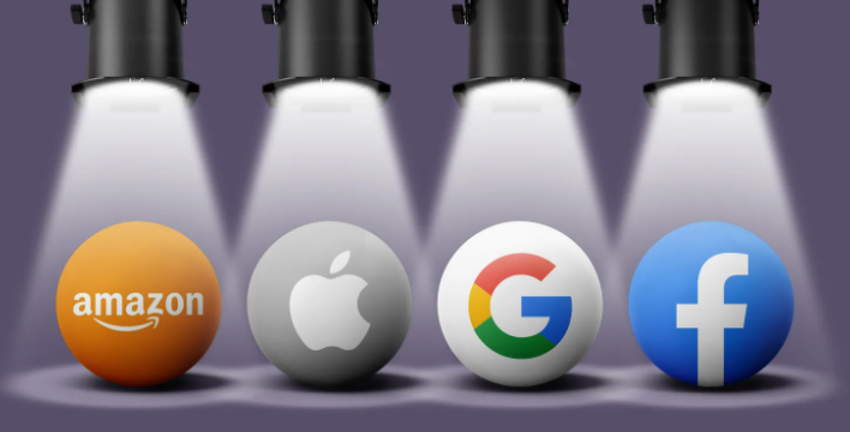Inching Towards a Kick in the Teeth
House Democrats have proposed a massive overhaul of U.S. laws that will take the air out of big tech, or will it?
We are seriously inching our way to a meaningful change in anti-trust regulation in the U.S.
The conclusions offer a legislative road map for congressional Democrats — something that could become an even poignant threat to Silicon Valley if the party regains full control of Congress and a major overhaul could be in the cards.
The House Judiciary antitrust subcommittee is in the midst of a 16-month bipartisan investigation that analyzed the dark practices of Facebook, Google, Apple, and Amazon.
These companies have used their dominant power to abuse the spirit of competition and the side effects have been widespread, often negatively affecting U.S. society.
A major strategy at preventing competition is the “catch and kill method” acquiring up-and-coming rivals because of their financial advantage.
Unfairly favoring their own products on the online storefronts they operate, such as Amazon's Marketplace and Apple's App Store is another trick they have perfected.
There have been calls to ban major tech platforms from acquiring future startups or potential rivals and barring them from both owning marketplaces — such as Amazon’s broad-based e-commerce hub — and selling competing products on them.
Either way, there will be some sort of actionable legislation once Congress returns in 2021 — this is ultimately negative for tech stocks because most of the investor capital is overweight in the biggest tech names.
Democratic hopeful Joe Biden is currently the favorite in the polls and if he wins, the pressure to expedite this cause will grow. Trump hasn’t moved on this issue in 4 years and it could get bogged down if he were to be re-elected.
Senators are pushing to rewrite antitrust law and advocate breakups of the largest American tech companies.
Tech companies wouldn’t be able to hide behind some outdated law infamously called Section 230.
This 1996 statute became known as "a core pillar of Internet freedom" and "the law that gave us modern Internet" — a critical component of free speech online. But the egregiousness of Section 230 flows through some of the darkest corners of the Web. Most glaringly, the law had been used to defend the now-defunct Backpage.com, a website featuring ads for sex with children forced into prostitution.
Section 230 would be on the top of the heap to get rewritten, meaning Facebook would now have to pay monetary damages to harmful content posted on their platform which they have proven they cannot moderate.
This opens up an avalanche of potential lawsuits and compliance issues which ultimately adds up to higher costs.
At this point, it’s even a question mark whether these companies will be allowed to acquire any more start-ups to cement their gains before the regulations kick in. Just look at Europe’s blocking of Google’s purchase of tech wearable company Fitbit.
Besides China, this is one of the few bipartisan issues both parties agree on, and if they get their act together the pipeline of regulation could even be started before the end of 2020.
The pandemic has only helped highlight the diversion of fortunes between tech and non-tech as millions of Americans are out on the street with no food to eat.
Biden has already launched a scathing attack on Facebook calling it “the nation’s foremost propagator of disinformation about the voting process” last month in a letter to Facebook CEO Mark Zuckerberg.
Punitive actions against some of the world’s most valuable companies will most likely come in droves, not to mention that the balkanization of global tech revenues will translate into a lower future income trajectory.
There is still a chance that this is all bluster and no bite but only time will show what the politicians truly intend to do in terms of meaningfulness and duration.
Big tech has had a history of seizing uncanny ways to get around regulation; and just look at rideshare company Lyft who is hoping to pass legislation to avoid paying their employees as employees with an upcoming vote on Proposition 22.
This is definitely not the end of the road for big tech, but they are confronted by a situation where even if they are broken up, the value of those companies would be even greater than they are now.
But why not play it safe when you don’t need to compete with yourself?
That’s the essential problem as just a few CEOs harvest the fruit from the success of tech; and the San Francisco Bay Area has been a symbol of this, with an island of rich people among a sea of homelessness.
The last card up their sleeve is charging more for services such as Gmail and Facebook while increasing fees for digital ads. There are ways to fiddle with the structure to keep it intact, and although regulation is now staring us right in the face, I still believe in the big tech narrative.
On the flip side, this paves the way for the “2nd tier” tech firms to catch up with the entrenched.


